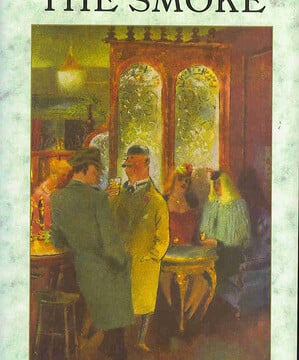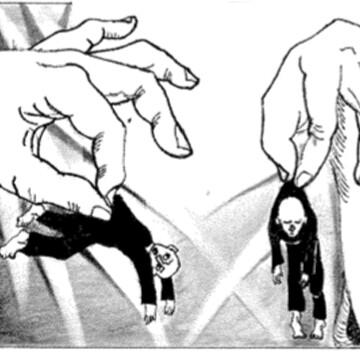Over the last ten years, A.N. Wilson has been compared to the great 20th-century English satirists: Waugh, Amis, and Barbara Pym. Now that he is in the process of writing a trilogy, it was inevitable that some critic would add to these the name of Anthony Powell. Of course, publishers like to compare the work...
Author: Carl C. Curtis (Carl C. Curtis)
Kings of the Wild Frontier
Until 20 years ago, one could count on Hollywood to produce at least one film every few years dealing with early American history. John Ford gave us Drums Along the Mohawk in the 1940’s, and Disney gave us the Swamp Fox in the 1960’s. Such movies may have given the public only “popular” history (before...
The City of Man—Texas Style
We all know something of cities that thrived once and then for one reason or another ceased to exist—preclassical cities we read about in myth and epic; Homer’s Troy or St. Paul’s Ephesus. So used are we to thinking of these extinct places as ancient and, therefore, remote, that it is hard to conceive, as...
Humanism as a Fine Art
It is a common fact of our century—appreciated most by George Orwell—that men who lust after power will distort words to gain their own ends. In 1933, a significant distortion took place. A group of men, John Dewey among them, drafted and published a now famous document, the Humanist Manifesto I, in which they declared...
Gimme That Ol’Time Education
” . . . Form and Limit belong to the Good.” —C.S. Lewis Liberals in the United States have lately gathered around the standard of pluralism in the hope of stalling the movement toward private Christian education. Yet Americans, historically indifferent to such objections, have been the last to censure a church—especially a reformed or...
Ski Poles and Baby Doctors
As essayists go, John McPhee has be come something of a celebrity. He has been praised in places as diverse as National Review and National Public Radio; he has written 18 books and no telling how many articles; moreover, he is said to be the best thing The New Yorker, in its decrepitude, has going...
Amazing Grace
In the New College at Edinburgh in 1934, young divinity students stimulated themselves by turning over old and new ideas: Calvinism, Barthianism, the role of the body of Christ in the world, the form of the liturgy, the purpose of missions—in other words, the same issues that, mutatis mutandis, have sparked theological discussions since the...
Epigones of the Lost Generation
Near the end of this fine book, John Aldridge observes: “The history of the period from 1890, roughly, to 1940 might . . . have been the history of the disappearance of the novel as an art form in society. . . . Yet there has seldom if ever been a time when more novels...
Redeemer Novel
Some years ago Ernest Tuveson argued in his landmark study Redeemer Nation that our country’s Puritan background has led it through a series of historical crusades—from Indian wars to Vietnam—to bring righteousness to a corrupt world. It’s an interesting idea, disturbing and perhaps perverse, that deserves more attention than it has gotten. Tuveson’s study leads...
The Eyes of Adam
Alberto Giacometti was almost a living caricature of The Modern Artist. Such a judgment would strike his biographer as unfair, but it cannot be helped. The popular mind has formed some definite ideas about how an artist behaves: he is above all shabby—wearing clothes he might have slept in, spattered with paint (or caked with...
Jolly Good Fellow
“The more I began to think about and read Coward, the more convinced I became that the history of British entertainment in the first half of this century was essentially the history of his own career.” With that observation, Sheridan Morley, drama critic and arts editor of Punch, begins his biography of Noel Coward. The...
A Stranger to His Kind
“Poetry,” declared T.S. Eliot, “is not a turning loose of emotion, but an escape from emotion; it is not an expression of personality, but an escape from personality.” More than one set of eyebrows has arched at that pronouncement. For surely we read in part to know the man behind the work. A blind bard,...
A Hero for Our Times?
Lord Louis Mountbatten died in 1979, a victim of IRA assassins. Since then, no fewer than three biographies on the man have appeared (if one includes The Life and Times of Lord Mountbatten, the book on Mountbatten’s self-orchestrated television documentary, shown in this country as Mountbatten: A Man for the Century). The latest, by Philip...
Black and White—and Red All Over
Don’t look for it at the corner news stand or in the promotionals from Publisher’s Clearing House. Except for professional Soviet watchers, few Americans even know of the existence of Culture and Life, an “illustrated monthly magazine of the Union of Soviet Societies for Friendship and Cultural Relations with Foreign Countries,” published in English, Russian,...



